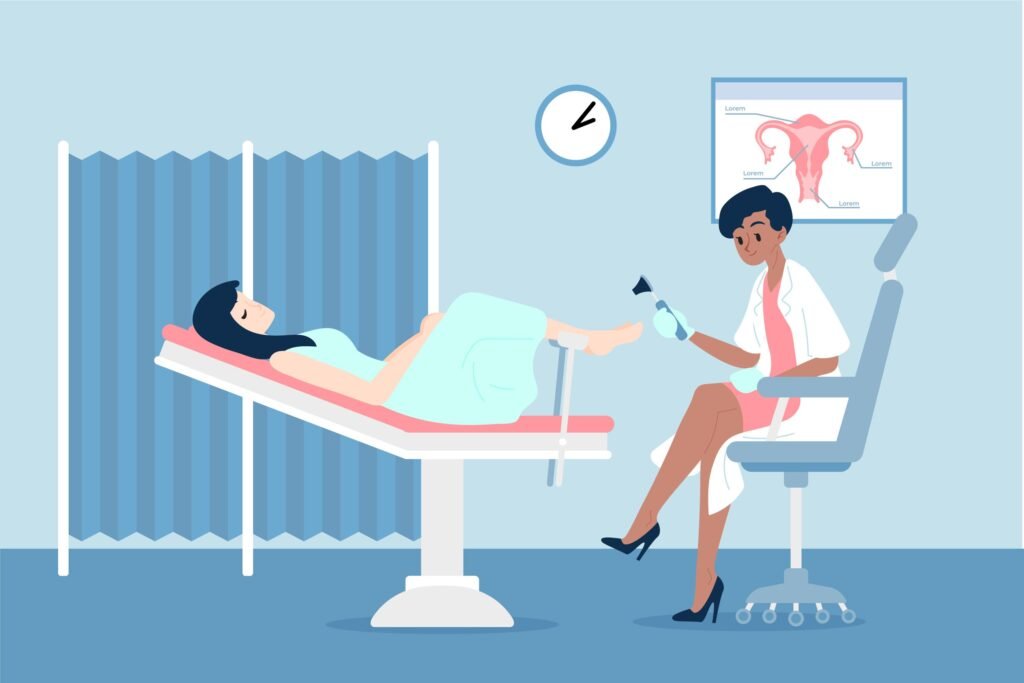Laparoscopy for Infertility in Chennai
Home / Fertility Care / Female Infertility Treatments / Laparoscopy
Laparoscopy for Infertility in Chennai – Advanced IVF Support at Dr. Archana IVF & Women Centre, Anna Nagar
Laparoscopy for infertility is a minimally invasive surgical procedure used to diagnose and treat conditions that prevent pregnancy. It helps identify problems like blocked fallopian tubes, endometriosis, ovarian cysts, fibroids, and pelvic adhesions. At Dr. Archana IVF & Women Centre, Anna Nagar, Chennai, laparoscopy in IVF is used to improve fertility outcomes, increase conception chances, and support safer IVF cycles with faster recovery and minimal scarring.
If you are trying to conceive and tests are inconclusive, laparoscopy for infertility in Chennai can provide clear answers and immediate treatment in the same procedure.

What is Laparoscopy for Infertility?
Laparoscopy for infertility is a keyhole surgical procedure performed under general anaesthesia. A thin camera called a laparoscope is inserted through a small incision near the navel. This allows the fertility specialist to examine the uterus, ovaries, and fallopian tubes directly.
Unlike scans or blood tests, diagnostic laparoscopy for infertility gives a real-time, detailed view of the pelvic organs. If a problem is found, treatment can often be done immediately.
This is why laparoscopy is considered both a diagnostic and therapeutic fertility procedure.
Many patients ask about laparoscopy in IVF and whether it is necessary.
Laparoscopy is recommended when:
- There is suspected endometriosis
- Fallopian tubes may be blocked
- Hydrosalpinx (fluid-filled tube) is present
- Pelvic adhesions are suspected
- Repeated IVF failures have occurred
- Chronic pelvic pain is unexplained
- Ultrasound findings are unclear
Correcting these issues before IVF can improve implantation rates and overall IVF success.
In selected cases, laparoscopy for infertility treatment in Chennai can naturally improve fertility without needing IVF.
CALL US
One Call Could Be Your First Step to Pregnancy.
Book Your IVF Assessment Today.
Laparoscopy Procedure for Infertility – Step by Step
Understanding the laparoscopy procedure for infertility helps reduce anxiety.
1. Anaesthesia
You will be under general anaesthesia. You will not feel pain.
2. Small Incision
A small 0.5–1 cm cut is made near the belly button.
3. Carbon Dioxide Gas
Gas is gently introduced to create space for clear viewing.
4. Internal Examination
The doctor checks:
- Uterus
- Ovaries
- Fallopian tubes
- Pelvic lining
5. Immediate Treatment (if needed)
The doctor may perform:
- Removal of endometriosis
- Removal of ovarian cysts
- Fibroid removal
- Adhesion removal
- Treatment of blocked tubes
6. Closure
The incision is closed with minimal stitches. Scarring is very small.
The benefits of laparoscopy for infertility include:
- Accurate diagnosis
- Treatment in the same procedure
- Minimal scarring
- Less blood loss
- Faster recovery
- Short hospital stay
- Improved fertility outcomes
- Better IVF success rates
Because it is minimally invasive, recovery is quicker compared to open surgery.
Benefits of Laparoscopy for Infertility

Laparoscopy for Infertility Success Rate
The laparoscopy for infertility success rate depends on the underlying condition.
For example:
- Endometriosis removal improves natural conception chances
- Adhesion removal improves tubal function
- Hydrosalpinx removal increases IVF implantation rates
Success is not just about surgery. It depends on:
- Age
- Ovarian reserve
- Duration of infertility
- Associated male factors
At Dr. Archana IVF & Women Centre in Anna Nagar, every case is individually evaluated before recommending laparoscopy.
Laparoscopy for Infertility Cost in Chennai
The laparoscopy for infertility cost in Chennai varies based on:
- Type of procedure (diagnostic vs operative)
- Hospital stay
- Complexity of treatment
- Additional procedures performed
On average:
- Laparoscopy for infertility cost in India ranges from ₹40,000 to ₹1,20,000.
- In Chennai, the cost depends on the centre and expertise.
At Dr. Archana IVF & Women Centre, Anna Nagar, transparent cost counselling is provided before treatment.
Insurance coverage depends on the policy. Some insurers cover laparoscopy if medically indicated.
Why Choose Dr. Archana IVF & Women Centre, Anna Nagar, Chennai?
Choosing the right fertility centre matters.
At our Anna Nagar fertility clinic:
- Experienced fertility surgeons
- Advanced laparoscopic equipment
- Personalised fertility planning
- Integrated IVF and surgical care
- Transparent cost guidance
- Patient-focused counselling
We combine clinical precision with compassionate care.
So if you are looking for Laparoscopy for infertility near me, Dr.Archana IVF & Women Centre is the right one for you

Book a Consultation for Laparoscopy for Infertility in Chennai
If you are struggling to conceive and want clarity, laparoscopy for infertility in Anna Nagar, Chennai can provide answers and treatment in one procedure.
Consult the fertility specialists at Dr. Archana IVF & Women Centre today and take the next step toward parenthood with confidence.
FAQs
1. Is laparoscopy necessary for infertility?
Laparoscopy is not required for every infertility case. It is recommended when non-invasive tests are inconclusive, tubal blockage is suspected, IVF has failed multiple times, or symptoms suggest endometriosis. At Dr Archana IVF & Women Centre, a complete fertility evaluation is done before advising surgical intervention.
2. Is laparoscopy for infertility painful?
Laparoscopy is performed under general anaesthesia, so there is no pain during the procedure. After surgery, mild discomfort, bloating, or shoulder pain may occur for two to three days. At Dr Archana IVF & Women Centre, post-operative pain is typically well managed with medication.
3. What is the recovery time after laparoscopy for infertility?
Most women are discharged the same day or within 24 hours. Light activities can usually resume within three to five days, and full recovery occurs in one to two weeks. At Dr Archana IVF & Women Centre, fertility treatments can often be planned within one to two months.
4. What is the time gap between laparoscopy and IVF?
The time gap between laparoscopy and IVF depends on the extent of surgery and healing. Minor procedures typically require four to eight weeks before starting IVF, while extensive surgery may need a longer recovery period. Specialists at Dr Archana IVF & Women Centre determine the ideal timing.
5. How does laparoscopy help in blocked fallopian tubes?
Laparoscopy can confirm tubal blockage, remove adhesions, open minor blockages, and treat hydrosalpinx before IVF. In some situations, IVF may be recommended instead of tubal repair. At Dr Archana IVF & Women Centre, treatment decisions are personalized based on the patient’s reproductive condition.
6. What are the disadvantages or side effects of laparoscopy for infertility?
Laparoscopy is generally safe but carries minor risks such as mild pain, temporary bloating, small infections, or rare bleeding. Anaesthesia-related risks are uncommon. When performed by experienced specialists like those at Dr Archana IVF & Women Centre, serious complications are rare.
7. What is laparoscopy for infertility?
Laparoscopy is a minimally invasive surgical procedure used to diagnose and treat fertility-related conditions such as endometriosis, fibroids, pelvic adhesions, and blocked fallopian tubes. At Dr Archana IVF & Women Centre, it is used both for accurate diagnosis and corrective treatment.
8. What is laparoscopic surgery in IVF treatment?
Laparoscopic surgery in IVF is performed to correct reproductive issues before starting an IVF cycle. Treating conditions like endometriosis or hydrosalpinx can improve implantation and pregnancy rates. At Dr Archana IVF & Women Centre, surgery is recommended only when it enhances IVF outcomes.
9. Does laparoscopy increase the chances of conceiving?
Yes, laparoscopy can improve natural conception and IVF success by treating underlying problems such as endometriosis, adhesions, or tubal issues. By restoring pelvic anatomy and reducing inflammation, it supports better reproductive outcomes at Dr Archana IVF & Women Centre.
10. What is the cost of laparoscopy for infertility in Chennai?
The cost of laparoscopy for infertility in Chennai varies depending on the complexity of the procedure, hospital stay, and additional treatments required. At Dr Archana IVF & Women Centre, a personalized cost estimate is provided after a detailed fertility assessment.
11. How many months after laparoscopy can you get pregnant?
Many women can start trying to conceive naturally within one to three months after recovery, depending on the condition treated. IVF may also be planned after adequate healing. Specialists at Dr Archana IVF & Women Centre guide patients based on individual recovery progress.
12. Is laparoscopy for infertility covered by insurance?
Insurance coverage for laparoscopy depends on the provider and policy terms. Some plans cover diagnostic and medically necessary procedures, while others may not. At Dr Archana IVF & Women Centre, patients receive assistance in understanding insurance eligibility and documentation requirements.


